Biotechnology Laboratory
The Biotechnology Laboratory was established in the early 1980s to develop various biotechnological tools applied to the conservation and use of plant genetic resources of strategic importance to CATIE and its member countries. Since its inception, it has made significant contributions to generating knowledge on the propagation, characterization, conservation, and genetic improvement of tropical crops such as coffee, cacao, banana, plantain, abacá, roots, tubers, forest species, and ornamentals, among others.
The laboratory offers technical advisory services in various topics:
- Development of micropropagation protocols for different species.
- Commercial multiplication of plant varieties, clones, elite plants, or other genetic materials.
- Training in coffee somatic embryogenesis, establishment of cell suspensions, and management of embryogenic cultures.
- Installation and training in the temporary immersion culture system using RITA® vessels.
- Training in the cryoconservation of seeds and different vegetative propagules using various techniques.
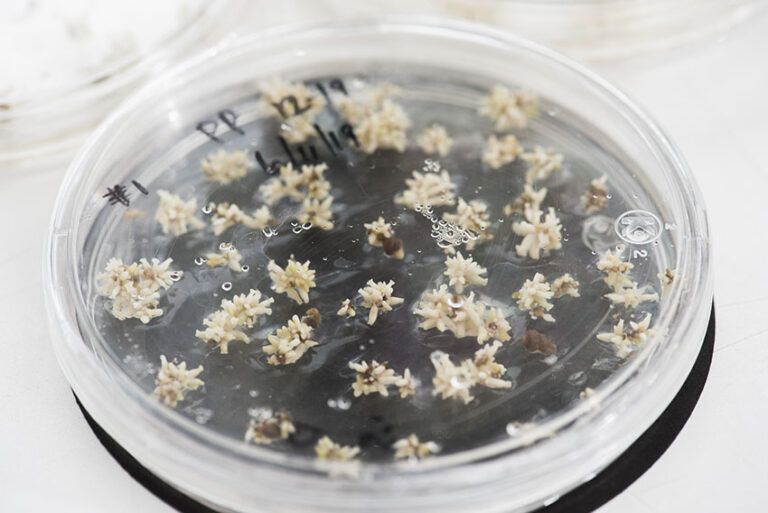
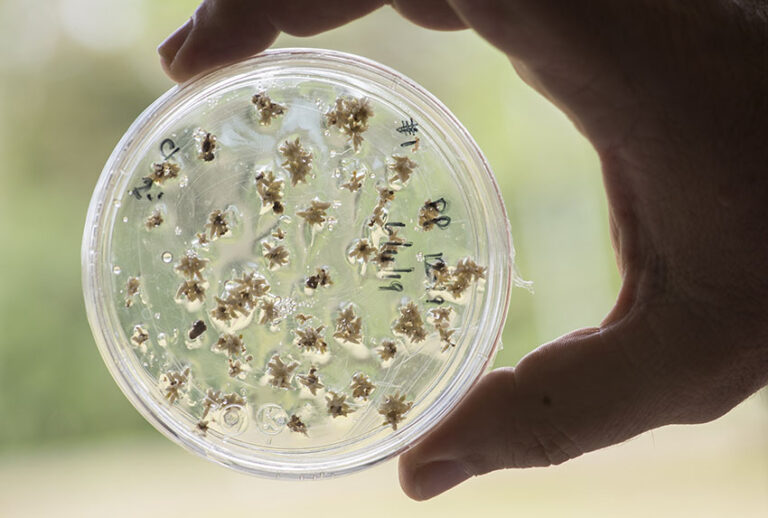
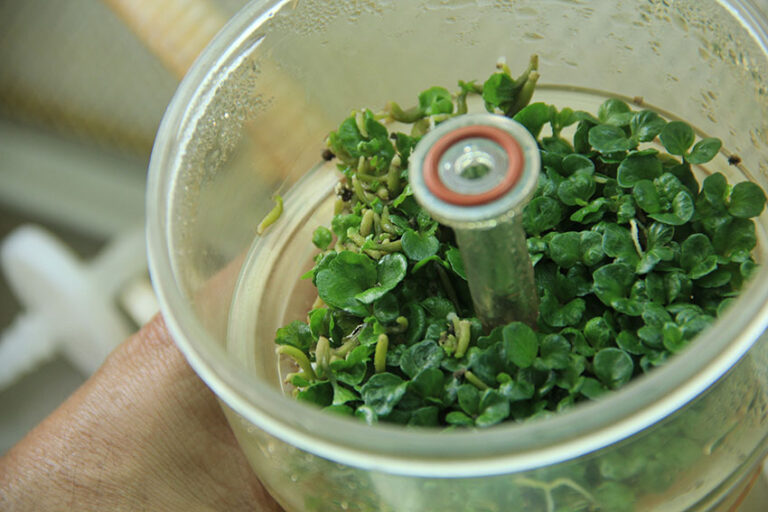
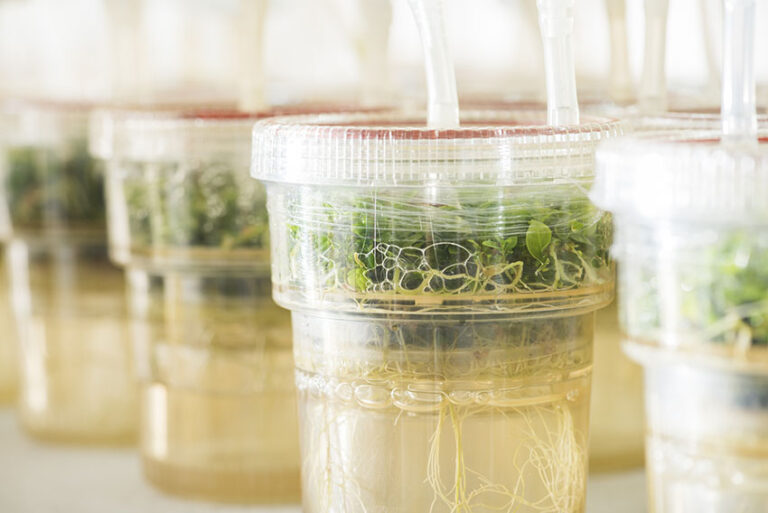
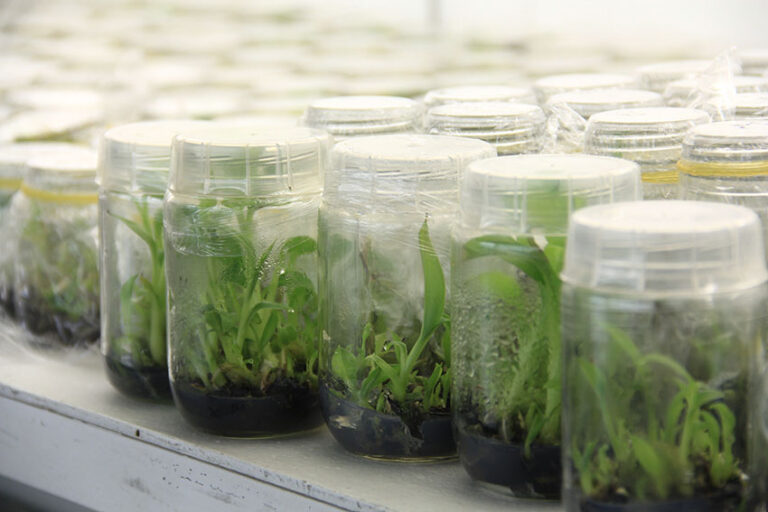
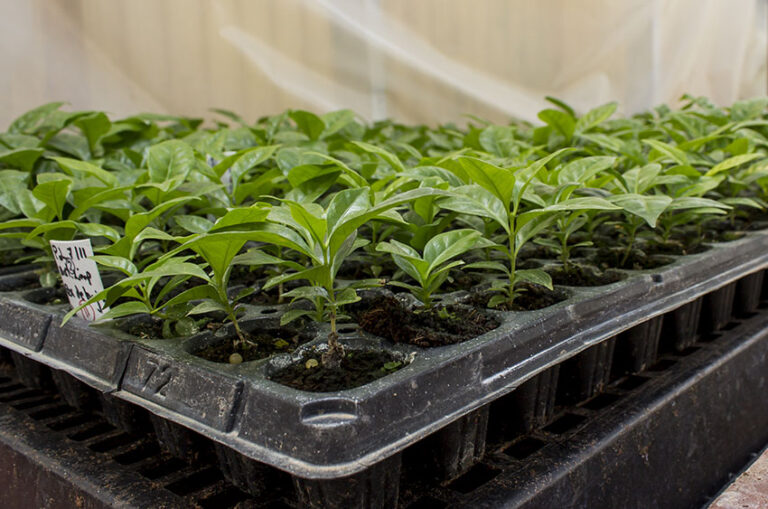
Contact Us!
- wsolano@catie.ac.cr
- +506 2558 2386
Production of improved coffee hybrids
Through its Biotechnology Laboratory and Forest Seed Bank, CATIE consolidated in 2012 a propagation strategy for F1 hybrids developed by the Coffee Genetic Improvement Project.
What is an F1 hybrid and why is its propagation important? It is a product that arises from a cross between living plant or animal organisms through sexual reproduction.
The creation and distribution of these hybrids aim to:
- Reduce plant production times
- Increase production capacity and reduce costs
- Improve resistance to diseases such as coffee leaf rust.
- Enhance vegetative vigor and high productivity.
- Achieve better adaptability to challenging environments.
- Offer excellent beverage characteristics
